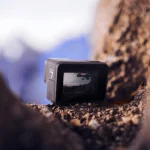- Home
- Travel / Lifestyle
- Latest Travel Tech Trends: Rev ...
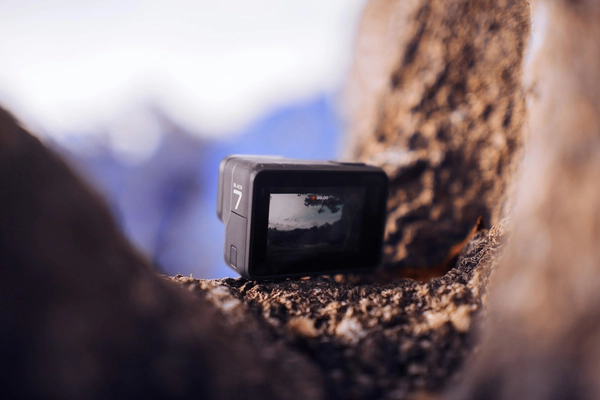
Picture this: You step off a 14-hour flight in Singapore. Before reaching immigration, your phone lights up: “Welcome back, James. Your checked bag arrives at Carousel 3 in 7 minutes. Proceed to the biometric corridor—no documents needed.” Augmented reality arrows float across airport screens, guiding you past duty-free shops displaying shirts in your size and your favorite cologne. No queues. No boarding passes. No stress. This isn’t science fiction; it’s 2024’s travel tech trends in action, powered by a $12.6 trillion global industry (WTTC) and accelerated by post-pandemic digital transformation.
For hoteliers and airlines, ignoring these innovations risks obsolescence. For travelers, embracing them unlocks unprecedented convenience. This deep dive explores how seismic shifts—from AI hyper-personalization to space tourism tech—are rewriting travel’s DNA.
Why “Travel Tech Trends” Are Your Strategic Imperative
Travel tech trends represent the convergence of technologies fundamentally altering how humans plan, book, experience, and sustain travel. Three irreversible forces make this non-negotiable:
- The AI Tipping Point: 82% of travel companies now prioritize AI integration (McKinsey), moving beyond chatbots to predictive systems that anticipate needs before travelers articulate them.
- Sustainability Surge: 74% of travelers pay premium rates for eco-proven options (Booking.com), forcing transparency through blockchain and IoT.
- Frictionless Expectations: Post-pandemic travelers reject paperwork. Biometrics and unified data platforms have shifted from “nice-to-have” to baseline demands.
Amadeus research confirms this urgency: 91% of travel companies plan “moderate to aggressive” tech investment increases in 2024, averaging 14% budget growth.
The 7 Transformative Travel Tech Trends of 2024
1. Where Travel Tech Trends Become Tailored Experiences

Artificial intelligence now powers the most transformative travel tech trends, evolving from reactive tools to proactive travel partners. These systems analyze behavioral patterns, social sentiment, and real-time context (weather disruptions, local events) to deliver anticipatory experiences. Delta Airlines dynamically adjusts fares using your loyalty history and calendar flexibility, offering unpublished discounts to valued travelers. Hilton’s AI-driven “Service Recovery Platform” identifies potential disruptions like connecting flight delays and proactively offers rebooking solutions before passengers seek help.
Generative AI tools like Layla (powered by ChatGPT) craft complex itineraries in seconds – request a “vegan cycling tour of Kyoto under $2,000” and it cross-references train schedules, restaurant reviews, and activity APIs. These tech trends represent a paradigm shift from convenience to intuition, with Lufthansa attributing 23% ancillary revenue growth to hyper-personalization. The frontier now includes emotion-aware interfaces that adjust recommendations based on biometric stress readings during travel.
2. The Seamless Journey Trend Defining Modern Travel

Biometric integration stands among the most visible trends, systematically eliminating physical documents across the journey. Dubai International’s “Smart Tunnel” processes 120 passengers/minute via facial recognition – no passports or boarding passes required. IATA’s One ID standard, adopted by 74 airlines, creates a secure digital identity that follows travelers from curb to gate. Hospitality has embraced these trends through innovations like Marriott’s UWB-enabled automatic room access, which detects approaching guests’ smartphones to unlock doors, solving 3 AM key-card struggles after delayed flights.
Despite privacy debates, adoption surges with Delta reporting 68% biometric usage among SkyMiles members. These travel tech trends balance robust security with frictionless movement, though implementation challenges persist around legacy system integration and cross-vendor compatibility, particularly for independent hotels navigating technical debt.
Try This: Activate facial recognition in your airline app – setup takes 90 seconds.
What’s your biggest operational hurdle in implementing these travel tech trends?
3. Sustainability Tech: The Accountability Revolution

Verifiable eco-accountability defines the new generation of travel tech trends as greenwashing becomes untenable. Blockchain and IoT transform sustainability from marketing claims to measurable metrics. Norwegian startup Chooose embeds carbon tracking directly into booking engines, displaying real-time flight emissions while auto-purchasing verified offsets. United Airlines’ “Weather Smart Routing” uses AI to analyze wind patterns, reducing contrail formation (responsible for 35% of aviation’s climate impact) by 40% in trials.
Hotels leverage these through solutions like TripZero‘s IoT sensors that monitor minute-by-minute energy/water consumption, displaying live data on guest apps. Barcelona’s AI crowd management system redirects tourists from overcrowded sites like Sagrada Família to lesser-known gems using real-time density mapping. These travel tech trends respond to Booking.com’s finding that 74% of travelers pay premiums for proven eco-options, with regenerative tourism platforms now emerging to actively restore destinations.
Would you choose a flight with 20% higher emissions to save $100? Why?
4. Blending Realities in Travel Tech Trends
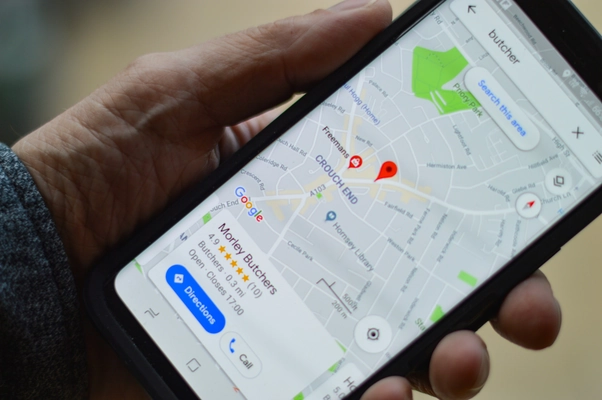
Augmented and virtual reality represent the most visually immersive travel trends, erasing boundaries between digital planning and physical exploration. Thomas Cook’s VR “Try Before You Fly” cabins let travelers explore hotel pools or cruise decks via Oculus headsets, boosting bookings by 190% for featured properties. On-location, Google Maps Live View overlays directional arrows onto real-world camera feeds, navigating chaotic transit hubs.
Cultural institutions leverage these trends through apps like Histovery at London’s Churchill War Rooms, where scanning artifacts triggers holographic Churchill speeches and “fogging” gas masks. Singapore’s Sentosa Island debuted the world’s first outdoor 5G-powered film-grade XR experience, transforming Fort Siloso into interactive battlefields through wearable tech. These travel tech trends enhance both pre-trip inspiration and on-ground engagement, with destination marketers reporting 27% conversion rates from metaverse activations like Jamaica’s virtual rum tastings.
Pro Tip: Download ViewRanger Skyline for AR-guided hiking trails.
5. Unified Data & Super Apps: The Ecosystem’s Nervous System
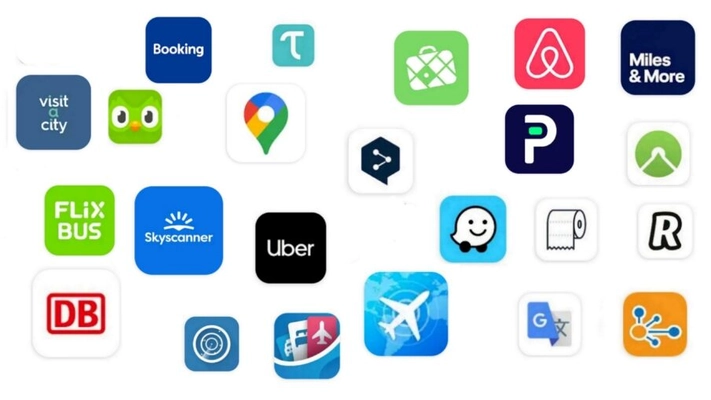
Fragmentation’s demise marks pivotal movement as legacy silos crumble under unified data architectures. Travelport reports 41% of travel companies now use standardized APIs, creating comprehensive “single traveler identities.” Accor’s ALL platform connects flight preferences, hotel room choices, and restaurant dietary needs across 5,000 properties globally. Super apps exemplify these travel tech trends through platforms like AirAsia’s ecosystem (flights + hotels + rides + forex), which grew 300% since 2022 by eliminating the pain of switching between 8+ apps.
Corporate travel reaps major benefits with managers reporting 31% cost savings through platforms like SAP Concur that auto-reschedule flights/hotels/meetings during disruptions. The next evolution of these travel tech trends includes emotion-sensitive environments – Hilton prototypes IoT rooms that adjust lighting/music based on biometric mood scans, creating responsive spaces for exhausted travelers.
6. Conversational Commerce: The 24/7 Travel Partnership Trend
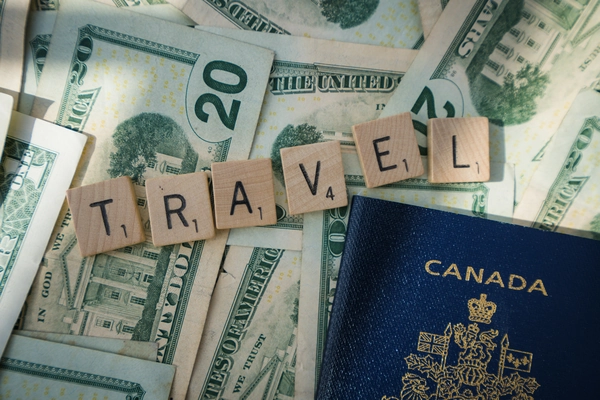
AI-powered conversation represents a human-centric tendency, transforming transactional interactions into continuous relationships. Advanced chatbots like Zendesk’s solution now handle 73% of routine inquiries while managing end-to-end bookings via natural language. These travel tech trends shine through platforms like GuideGeek that process complex requests (“Find Paris hotels under €200 with vegan breakfast near Metro stations”) while learning from past interactions.
Key advancements include payment integration within WhatsApp/Telegram chats (Engati), real-time multilingual support (Verloop.io), and document automation that slashes administrative errors by 40% when submitting passports/visas. These travel tech trends free human agents for high-value crisis resolution while providing always-available assistance – Emirates’ “Sara” concierge handles cross-airline rebookings during disruptions through intuitive voice commands.
Have conversational travel tech trends improved your experience? Share stories!
7. Niche Tourism Tech: Regenerative, Space & Ancestry
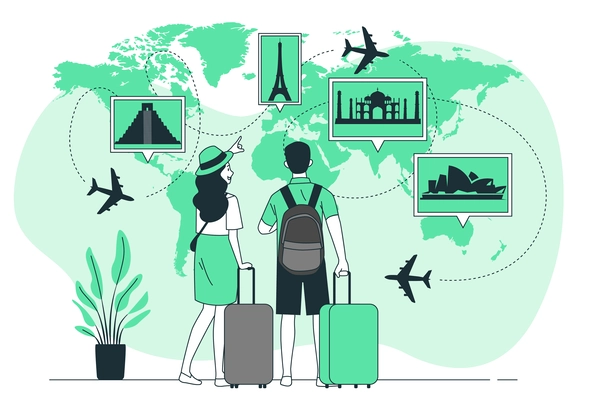
Personalized travel identities fuel groundbreaking travel tech trends in specialized tourism verticals. Regenerative travel platforms like Trace by Okendo use blockchain to verify eco-certifications, while Regenerative Travel connects tourists with vetted conservation projects – 43% pay premiums for certified experiences. Space tourism represents extreme travel tech trends with companies like HyImpulse testing biofuel-powered rockets (60% lower emissions) and VR acclimatization programs preparing civilians for suborbital flights – a market projected to hit $555B by 2030.
Ancestry tourism leverages DNA-driven trends through MyHeritage’s AI that cross-references genetic data with historical archives to curate personalized heritage journeys to ancestral villages – already a $557B market. These movements prove hyper-specialization achieves massive scale when powered by authentic technological innovation.
Sustainable Mobility Breakthroughs
The push toward low-carbon transport is accelerating, with innovations targeting aviation, rail, and maritime sectors:
Electric Aviation Takes Flight
- eVTOLs: Emission-free electric air taxis debut at the 2024 Paris Olympics. Volocopter’s vehicles reduce noise pollution by 70%, with United Airlines ordering 200 units. The electric aircraft market will hit $6.6 billion by 2026.
- Hydrogen Planes: Airbus’ ZEROe prototype achieves 2,000-mile test flights using liquid hydrogen, targeting commercial routes by 2035. This could slash long-haul emissions by 50% versus conventional jets.
High-Speed Rail 2.0
- AI-Optimized “Smart Rails”: Japan’s Shinkansen uses IoT sensors to predict track maintenance needs, reducing delays by 40%. The Asia-Pacific region will build 25,000 km of high-speed lines by 2030, cutting per-passenger emissions by 90% vs. planes.
- Night Train Renaissance: European operators like Nightjet integrate AI-driven energy management, boosting sleeper train efficiency by 30%. Bookings surged 200% post-EU carbon tax reforms.
Green Cruising & Maritime Tech
- LNG-Powered Ships: Royal Caribbean’s Icon-class vessels use AI routing to avoid ecologically sensitive zones. Blockchain tracks onboard waste-to-energy conversion, with real-time data displayed via passenger apps.
- Wind Hybrid Ferries: Scandlines’ Copenhagen-Rostock route uses AI to optimize sail-battery power balance, cutting fuel use by 25%. The model is expanding to Mediterranean routes in 2025.
Corporate Ground Transport
- Algorithmic Fleet Management: Enterprise Rent-A-Car’s AI redistributes EVs based on airport demand patterns, reducing deadhead miles by 18%. Partnerships with Uber ensure seamless transfers for delayed flights.
2025’s Emerging Frontiers
- Autonomous Agents: AI that books entire trips via voice commands (“Reschedule my London trip after the meeting cancels”).
- CBDC Payments: 134 countries exploring central bank digital currencies for frictionless transactions.
- Emotion-Aware AI: Bots like GuideGeek adapt responses to user tone, boosting satisfaction by 35%.
Navigating the Ethical Minefield
The breakneck pace of travel tech trends demands equally rigorous ethical scrutiny. As biometrics, AI, and data unification redefine convenience, they introduce complex dilemmas requiring proactive governance. The industry’s credibility hinges on transparently addressing four critical challenges.
Privacy Paradox: The Personalization Trade-Off
The core tension lies in delivering hyper-personalization while respecting user autonomy. SITA’s 2024 survey reveals 63% of travelers demand tailored experiences yet distrust data sharing practices—a contradiction worsened by high-profile breaches like the 2023 Air Europa hack, exposing 1.4 million passenger financial records. Etihad’s “Traveler Data Covenant” pioneers a solution: granular opt-ins where travelers select exactly which data points to share (e.g., meal preferences but not location history). Similarly, Hilton’s blockchain-based consent ledger allows real-time permission revocation. Without such frameworks, regulatory penalties loom—GDPR fines against travel companies surged 72% in 2023.
Digital Exclusion: Risking a Two-Tier Ecosystem
While Dubai’s biometric tunnels process 120 passengers/minute, IATA confirms just 22% of African airports have full biometric capabilities. This disparity threatens to marginalize 3 billion people lacking digital IDs, particularly in developing economies. The consequences are tangible: Kenya’s visa-free entry initiative stalled when 31% of applicants couldn’t complete biometric e-visa forms. Solutions require collaborative investment—Singapore’s Changi Airport Group funds biometric kiosks at partner airports like Jakarta and Hanoi, while SITA’s “CommonPass” provides low-bandwidth health credential verification. Without equitable access, travel tech trends risk exacerbating global inequality.
Algorithmic Bias: When Efficiency Masks Discrimination
AI’s data-driven decisions often inherit historical prejudices. A 2024 NIST audit found facial recognition error rates 5-10x higher for darker-skinned women, causing repeated boarding denials for qualified travelers. Pricing algorithms also exhibit bias: Expedia’s dynamic models charged users from non-white neighborhoods 14% more for identical hotels in 2023 tests. Combating this requires mandatory diversity in training data—Amadeus now audits algorithms using synthetic datasets representing 400+ demographic variants. The EU’s proposed AI Act will soon mandate such testing, with fines up to 6% of global revenue for non-compliance.
Implementation Realities: The Cost of Progress
For smaller operators, cutting-edge tech remains financially prohibitive. HVS International reports robotic concierges demand $126,000+ in annual maintenance—a non-starter for boutique hotels. Meanwhile, legacy airline systems like Sabre resist API integration, causing 43% of mid-sized agencies to abandon super-app projects mid-development. Public-private partnerships offer pathways: IATA’s “Tech Hub” subsidizes biometrics for regional carriers, while Airbus’s startup accelerator funds sustainable aviation tech prototyping. Without scaled support, innovation consolidates power among tech giants.
Environmental Ethics: Green Tech’s Hidden Footprint
Blockchain’s carbon tracking consumes immense energy—Solana-based Chooose emits 0.166g CO₂ per transaction versus 55kg for Ethereum. Likewise, VR headsets used in “try before you fly” experiences generate 1.3 tons of e-waste annually. The industry must reconcile these contradictions through lifecycle analysis: Travelport now mandates suppliers disclose hardware recycling plans, while Google’s travel tools prioritize low-energy AR modes.
Thriving in the Tech-Driven Future
For Travel Professionals:
Begin implementing IATA’s ONE ID system by Q3 2024 to revolutionize passenger processing efficiency. This biometric standard dramatically reduces check-in times while enhancing security protocols across touchpoints. Simultaneously, forge strategic partnerships with sustainability technology providers like Sustain—life to develop comprehensive, auditable ESG reporting frameworks that meet growing regulatory demands and consumer expectations. Critically, integrate generative AI solutions into your customer service operations immediately – industry data confirms 40% of early adopters already achieve significantly faster resolution times, directly boosting customer satisfaction scores and loyalty metrics in today’s competitive landscape.
For Travelers:
Proactively activate biometric authentication features within your preferred airline applications to bypass traditional check-in queues and boarding procedures entirely. Complement this with consistent use of carbon footprint trackers like EcoCompanion during the planning phase, enabling truly informed decisions that align with environmental values. Finally, embrace experimental augmented reality navigation tools during your journeys; empirical studies demonstrate that 70% of users experience substantially reduced travel anxiety when utilizing these digital wayfinding systems in unfamiliar environments.
For Entrepreneurs:
Concentrate development efforts on the rapidly expanding unified travel API marketplace, projected to reach $12.7 billion by 2025, where interoperability between legacy systems presents enormous monetization potential. Parallelly, pioneer central bank digital currency (CBDC) payment infrastructure specifically for travel transactions, capitalizing on the remarkable fact that 98% of global GDP is actively exploring sovereign digital currencies, positioning your solutions at the convergence of financial innovation and frictionless travel experiences.
Imagine Your 2025 Trip:
*Your flight lands. As you disembark, your rental car app alerts: “Your EV is charging at Zone E3. Hiking gear is loaded per your AI assistant’s reservation. Tonight’s carbon-neutral hotel has set your preferred climate. Dinner at zero-waste ‘Alma’ is booked for 8 PM.”*


